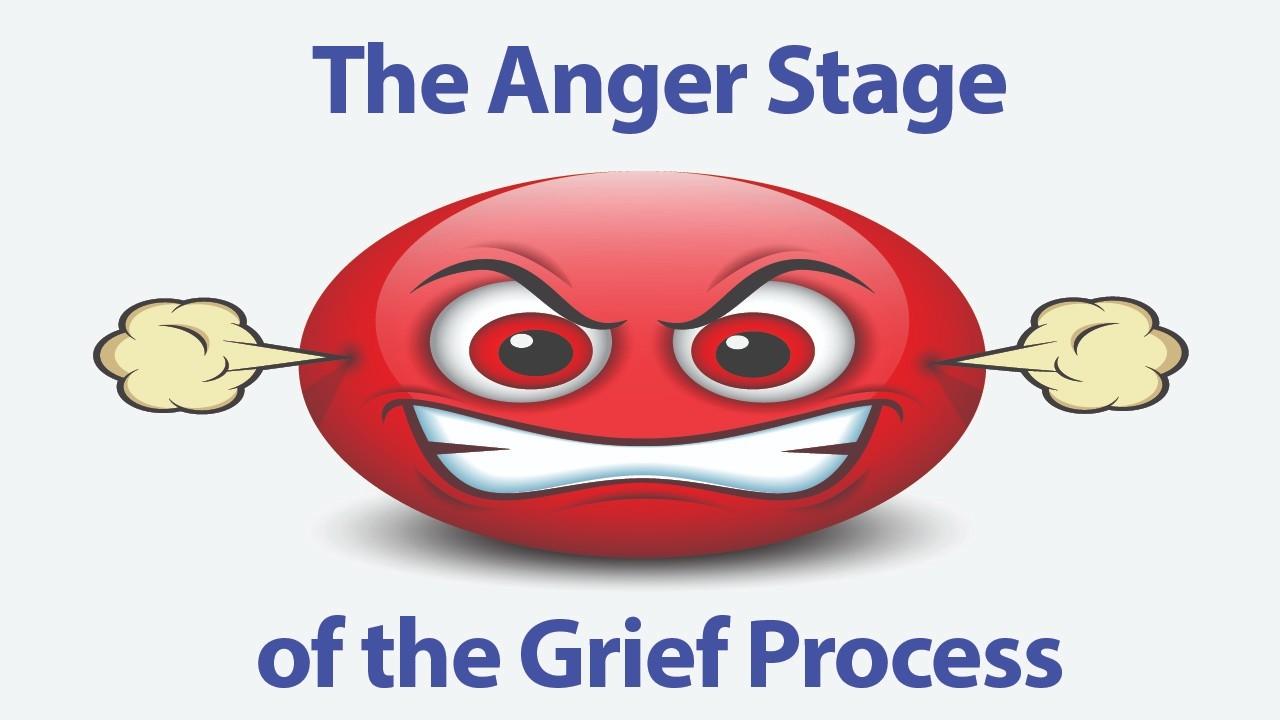The Anger Stage Of The Grief Process

“Anger” is the second of the Five Stages of Grief created by Elisabeth Kubler Ross & David Kessler. This is the first time in any stages of the grief process where you’re actually expressing your emotions and acknowledging the loss.
But, “anger” can mean a lot of things and it manifests itself in several different ways. So, let’s go over what to expect when you enter the anger stage.
Why Anger?
If you’re feeling sad because of the loss, why does it tend to show up as anger? Well, it all comes down to covering up your true emotions and hiding your sadness and grief from the outside world.
Think about it, you’re going through a tough time and you’re overwhelmed with emotions overall. At the same time, you’re angry about the loss and just want to find someone or something to blame for your pain and suffering.
Targeting your anger toward specific people might be unwarranted, but it’ll most likely be your first method of coping with the loss.
What to Expect
You might find yourself angry at just about everyone and everything. It’s quite common to be a little snippy and short with people, even if they mean well and are just trying to lend a listening ear or a helping hand. Lashing out is common too.
Here’s a brief list of the potential sources of your anger.
Anger at the doctors or nurses for diagnosing your loved one’s medical condition (or not diagnosing it sooner)
Anger at yourself for not spending enough time with your loved one when they were healthy and/or alive
Anger at your loved ones for not understanding your emotions or how you’re affected by the loss
Anger at your spouse or significant other for breaking up with you or leaving you
Anger at how the world seems to be ganging up on you and how negative things keep happening to you specifically
Even though you know your anger isn’t rational, it feels as if it is at the time. The most important thing you can do is let others know that you’re struggling with your emotions and that you don’t mean what you’re saying.
Getting Through the Anger
While there’s no good way to rush the grieving process, there are some ways you can limit the effects that your emotions are having on those around you. That’s especially important when you find yourself lashing out at those who don’t deserve it.
First, take some time to yourself and allow yourself to process the loss. Give yourself some space to handle your thoughts and emotions alone first before you begin opening up to those around you.
Find good coping strategies. It’s not okay to take your anger out on other people, so find a healthier way to handle your anger. Intense exercise can help you to burn off some steam while going out into nature might make you feel more relaxed.
The goal isn’t to simply cover up the anger, but rather find a better method of letting it out.
Final Thoughts
Anger is an unavoidable stage of grief (for the most part), but that doesn’t mean that it has to ruin your relationships with those around you. Remember that there’s nothing that could’ve been done, and hindsight is always 20/20.
Take some time to acknowledge your emotions but understand that your impulsive anger won’t solve anything in this situation. Do your best to rid yourself of any lingering anger by finding a healthier coping strategy to avoid taking it out on other people.
What's the Difference Between
Anxiety & Panic Attacks?
Download our free printable workbook with writing prompts that will help you learn the difference between worrying & anxiety disorders, how to control your anxiety symptoms & how to speak to loved ones to get the help you need.
Categories
All Categories
Follow Us






